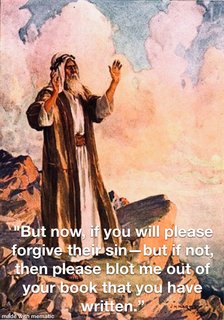I am a believing Christian who recognizes that Isaiah is speaking of Christ.Atticus wrote: ↑December 5th, 2021, 7:14 amAny believing Christian who reads Isaiah 53:11-12 can immediately recognize that these verses are speaking of Jesus Christ and His atoning sacrifice, where he literally takes the sins of the people upon Himself, not of some mortal who suffers for the people's sins in order to provide temporal salvation.Mamabear wrote: ↑December 5th, 2021, 5:39 amFrom Isaiah explained chapter 53:11:Atticus wrote: ↑December 4th, 2021, 9:08 pmGileadi claims that Christ is a "type" of the Davidic Servant. Not the other way around.. That's an important distinction to make.
And he also doesn't say that Isaiah 53:11-12 is a dual prophecy of both Christ and the Davidic Servant. He says those verses refer exclusively to the Davidic Servant and not to Christ.
“The positioning of verses 1-10 between the two servant passages (Isaiah 52:13-15; 53:11-12) suggests a close affinity between their subjects. Jehovah and his servant—both of whom serve as proxy saviors but on different spiritual levels—resemble one another in many aspects of their descent and ascent phases. What is said of one is thus typical also of the other. The spiritual salvation Jehovah obtains by paying the price of his people’s transgressions under God’s law of justice, however, is unique to him, whereas the temporal salvation the servant obtains is obtained by others of Jehovah’s servants as well.
King Hezekiah’s role as a proxy savior in obtaining his people’s temporal salvation under the terms of the Davidic Covenant (Isaiah 37:35-36; 38:4-6) nevertheless serves as a type of both Jehovah and his servant. Although verse 11—in which Jehovah speaks of his “servant” or vassal—specifically addresses the servant’s role of proxy savior, all three—Jehovah, his servant, and Hezekiah, each on his own level—“bear their [people’s] iniquities” when answering for their disloyalties. All three proxy saviors, in other words, take their peoples’ covenant curses upon themselves and suffer on their account.“
The atoning sacrifice of Jesus Christ is not some type of a future sacrifice by a mortal servant of the sins of his people.
There aren't three (or more) proxy saviors for the people.
Perhaps Gileadi should have paid better attention to Isaiah 43, where the Lord says:
11 I, even I, am the Lord; and beside me there is no saviour.
I will also add that there's nothing in Isaiah 37:35-36 and 38:4-6 that even remotely suggests that Hezekiah was some proxy savior who suffered for the sins of the people in order to provide a temporal salvation for them. It seems Gileadi is pulling this whole proxy savior thing out of thin air. The scriptures do not support what he is saying at all and actually expose his false interpretations.
Hezekiah was a prophet during his time and acted as a proxy savior. Please read the story. It’s no different than when Moses acted as a proxy savior to the people, and Abraham, Noah, etc. We act as proxy saviors in the temple. This concept is not new and Gileadi didn’t just make it up.


